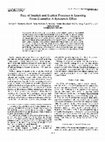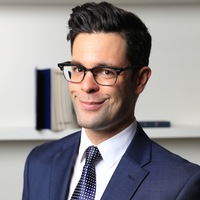Papers by William Stanley

Science Education, 2001
We contend that science education should be multicultural. We do not believe a universalist view ... more We contend that science education should be multicultural. We do not believe a universalist view of science is either compatible with a multicultural approach or fully coherent as a foundation for the science curriculum. We begin by summarizing the case for a universalist approach to science education. We then show weaknesses of universalism in accounting for the following: 1. the limits of human cognitive capabilities in constraining what we can understand about nature; 2. a description of reality as a flux; 3. the disunity of science and the role of culturally different forms and social organization of research in shaping the cognitive content of the sciences. We argue that it would be valuable for students to understand the nature of the debates regarding multicultural and universalist perspectives on science. For example, what questions is contemporary molecular biology good at answering? What kinds of problems do other sciences solve? What historical conditions may explain why western sciences arose primarily out of Western European culture rather than elsewhere in the world? How do other belief systems (e.g., religion) interact with indigenous sciences, Chinese science, and Western science?

Science Education, 1994
Multiculturalists have recently raised a number of important challenges to the school curriculum,... more Multiculturalists have recently raised a number of important challenges to the school curriculum, including whose knowledge are we teaching? and who benefits and loses by existing approaches to the curriculum? In this article we examine a number of issues in this debate that are of primary importance to science educators. These issues include: (1) problems with the universalist account of the nature of science that has been the most powerful defense against multiculturalism; (2) an examination of some historical cases that illuminate the consequences of maintaining a universalist perspective on science; and (3) an argument for a multicultural perspective on scientific knowledge. These issues are examined in the context of a national science education reform in which there is considerable consensus that the science curriculum should include teaching about the nature of science. We argue that the nature of science taught in school should reflect a multicultural perspective on scientific knowledge. © 1994 John Wiley & Sons, Inc.

Journal of Experimental Psychology-learning Memory and Cognition, 1989
Four experiments are reported in which subjects gained extensive experience with artificial gramm... more Four experiments are reported in which subjects gained extensive experience with artificial grammars in explicit and implicit processing tasks. Results indicated that (a) implicit processing was sufficient for learning a finite state grammar but was inadequate for learning another type of grammar based on logical rules, (b) Subjects were able to communicate some of their implicit knowledge of the grammars to another person, (c) Consistent with rule induction but not memory array models of learning, verbal protocols indicated there was no tendency to converge on the same set of cues used to identify valid strings, (d) A synergistic learning effect occurred when both implicit and explicit processing tasks were used in the grammar based on logical rules but not in the finite state grammar. A theoretical framework is proposed in which implicit learning is conceptualized as an automatic, memory-based mechanism for detecting patterns of family resemblance among exemplars.
Prior to my senior year, my family moved to South Plainfield, NJ. I had the good fortune to take ... more Prior to my senior year, my family moved to South Plainfield, NJ. I had the good fortune to take a "problems in American democracy" course with a wonderful teacher, Larry Carbonetti.
Should social studies educators transmit or transform the social order? By "transform" I do not m... more Should social studies educators transmit or transform the social order? By "transform" I do not mean the common view that education should make society better (e.g., lead to scientific breakthroughs, eradicate disease, increase productivity, etc.).








Uploads
Papers by William Stanley